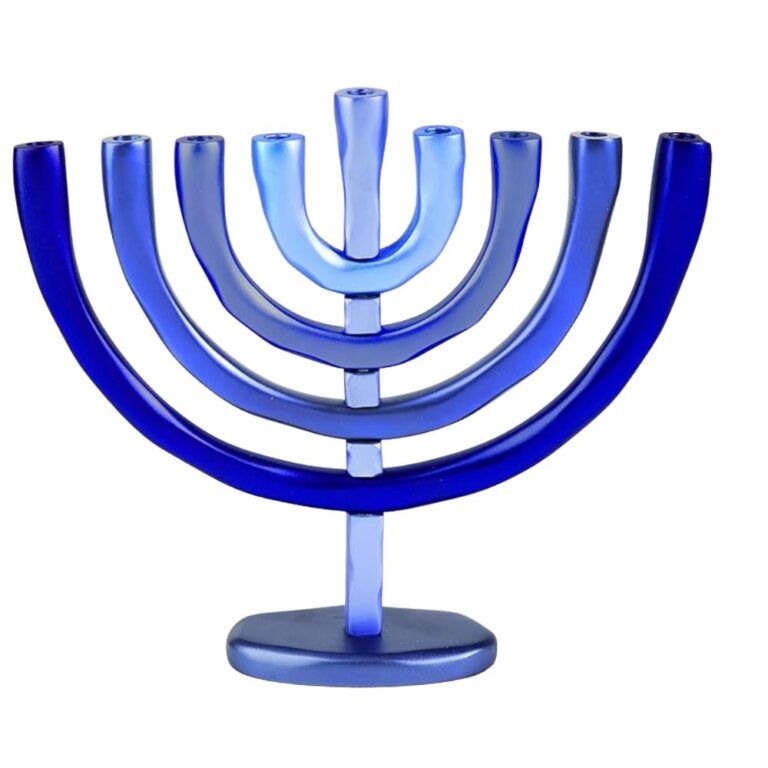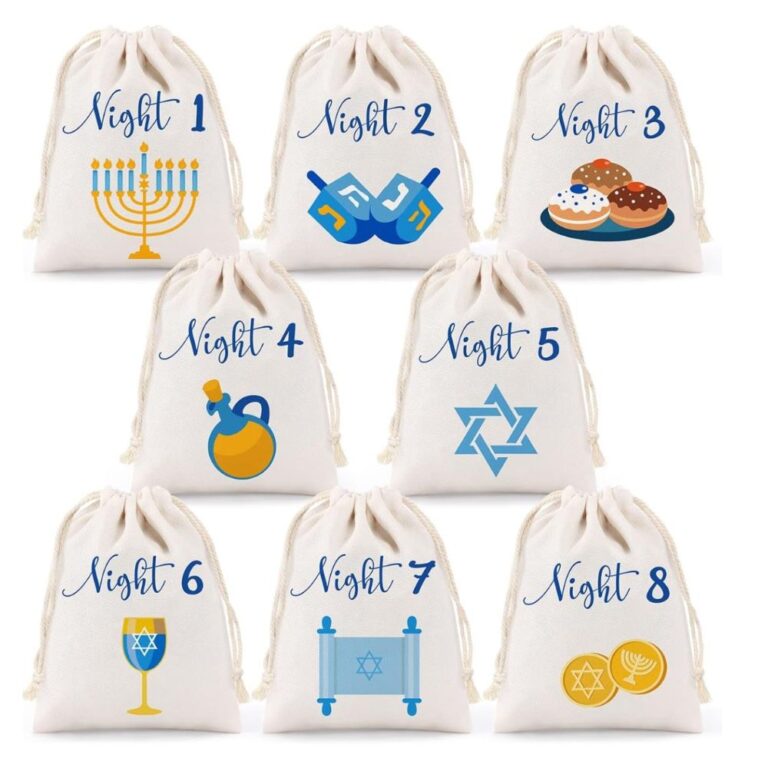Kosher vs Halal: Understanding the Differences and Similarities
Table of Contents
- Top 20 Differences Between Kosher and Halal
- Are Kosher and Halal the Same?
- Are Muslims Allowed to Eat Kosher?
- Can Jews Eat Halal?
- What Makes Something Kosher?
- Conclusion
Top 20 Differences Between Kosher and Halal
| Aspect | Kosher | Halal |
|---|---|---|
| Origin | Jewish dietary laws (Kashrut) | Islamic dietary laws (Shariah) |
| Religious Text | Torah and Talmud | Quran and Hadith |
| Certifying Body | Rabbi or Kashrut agencies | Islamic authorities |
| Animals Allowed | Mammals with split hooves and chew cud | All except prohibited animals (pigs) |
| Pork | Always forbidden | Forbidden |
| Slaughter Method | Shechita – quick and humane | Dhabihah – humane, prayer said |
| Blood Consumption | Blood must be drained | Blood must be drained |
| Seafood | Only fish with fins and scales | All seafood allowed |
| Alcohol | Forbidden in large quantities, kosher wine allowed | Forbidden altogether |
| Stunning Animals | Prohibited before slaughter | Allowed in some cases |
| Blessings | Rabbi recites blessings during slaughter | Blessing “Bismillah” said at slaughter |
| Inspection | Must be inspected by a Rabbi post-slaughter | Inspected by a Muslim butcher |
| Certification Labels | Kosher certification labels (OU, OK, etc.) | Halal certification labels |
| Mixing Meat & Dairy | Strictly prohibited | Allowed |
| Meat & Poultry | Must be certified kosher | Must be certified halal |
| Gelatin | Only from kosher animals | Must be from halal sources |
| Enzymes | Must come from kosher animals/plants | Must come from halal animals/plants |
| Processing Equipment | Must be kosher-certified | No strict rules, as long as halal |
| Kosher/Halal Symbols | Kosher: circled K, OU symbol | Halal: H in a circle, halal logo |
| Market Availability | Common in Jewish markets and communities | Common in Muslim markets and communities |
Are Kosher and Halal the Same?
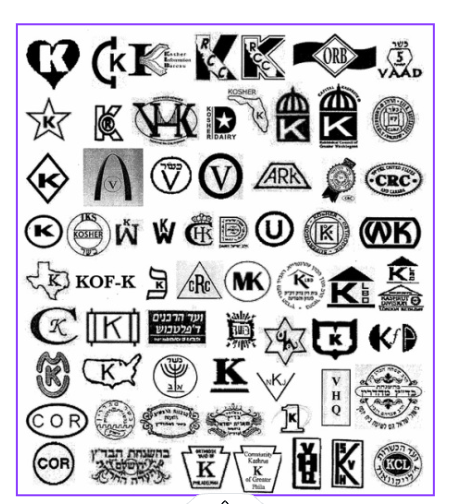

No, Kosher and Halal are not the same, although they share some key similarities in their restrictions. Both dietary laws prohibit the consumption of pork and require the humane slaughter of animals. However, the rules governing kosher and halal extend beyond these basic principles and differ in many areas:
Kosher laws, stemming from Judaism, focus heavily on the type of animals that can be consumed (e.g., only mammals that chew cud and have cloven hooves are permitted), the prohibition of mixing meat and dairy, and the rigorous inspection and blessing processes carried out by a Rabbi.
Halal dietary laws, derived from Islam, are less restrictive regarding the types of animals that can be consumed (permitting all animals except for a few like pigs). Halal also allows the consumption of seafood without restrictions, and meat can be eaten alongside dairy. The key focus in Halal is that the animal must be slaughtered in the name of God with a specific blessing (“Bismillah”) said during the process.
While both diets emphasize cleanliness, humane practices, and the exclusion of impure foods, the specific rules and enforcement differ greatly between Kosher and Halal traditions.
Are Muslims Allowed to Eat Kosher?


The permissibility of Muslims eating kosher food is a debated topic within the Islamic community. In general, many Islamic scholars agree that kosher meat can be consumed by Muslims under certain circumstances. Since kosher slaughter methods involve the draining of blood and a blessing (albeit a Jewish one) over the animal, it can align with halal principles.
However, this is only acceptable if halal meat is not available. In such cases, some Muslims may choose to eat kosher meat, while others prefer to stick strictly to halal-certified products. Muslims also avoid products like kosher wine, as alcohol is strictly forbidden in Islam, even if certified kosher.
Ultimately, the decision depends on the individual’s interpretation of Islamic law and the availability of halal alternatives in their location.
Can Jews Eat Halal?
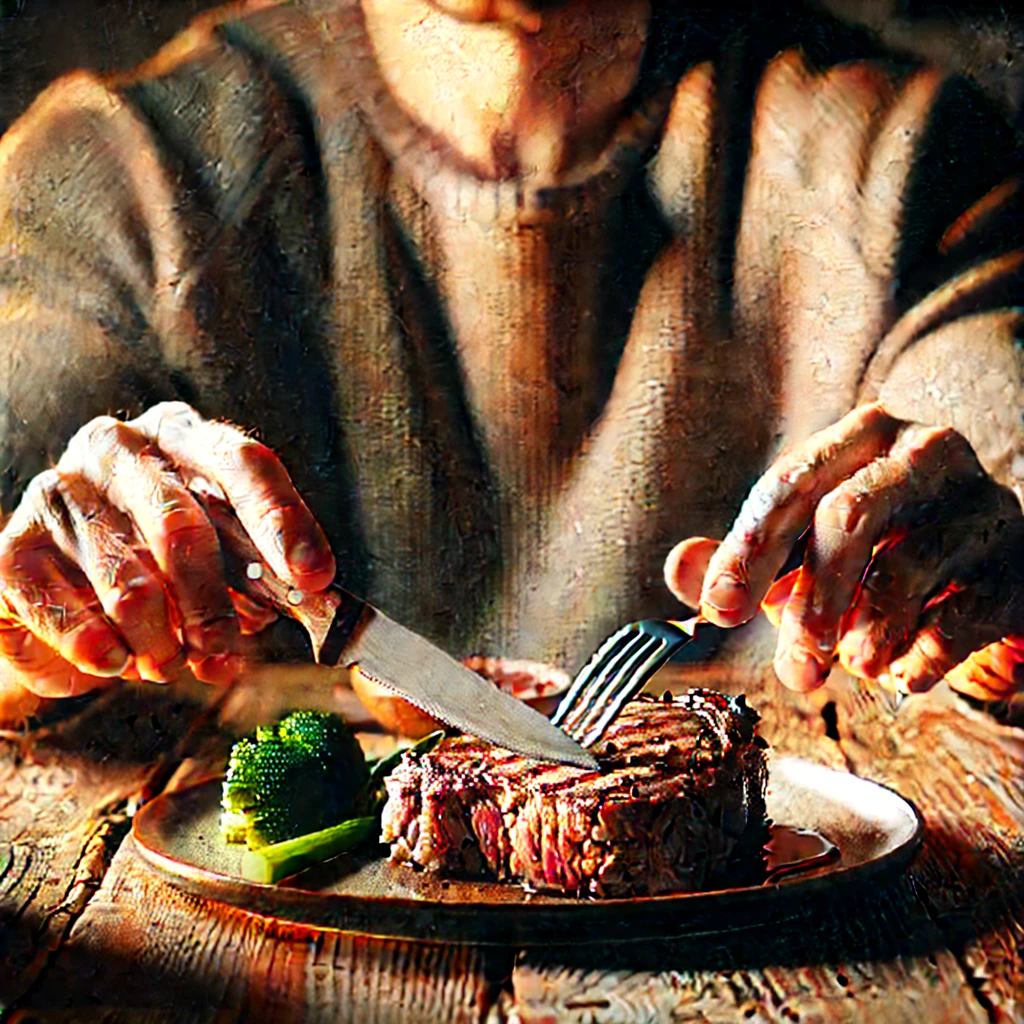

Jews generally do not eat halal food, as halal does not meet the strict standards of Kashrut. Although both kosher and halal slaughter methods ensure that the animal’s blood is drained and a prayer is recited, kosher laws go beyond these requirements. The meat must be prepared under the supervision of a Rabbi, who ensures that the entire process complies with Jewish law.
Moreover, halal law allows the consumption of animals that are not kosher, such as shellfish and certain birds, which are strictly prohibited in the kosher diet. Additionally, halal does not have the same rigorous rules regarding the separation of meat and dairy, which is one of the pillars of the kosher diet.
Therefore, despite some similarities, halal-certified products are not kosher and thus cannot be consumed by Jews who observe Kashrut.
What Makes Something Kosher?
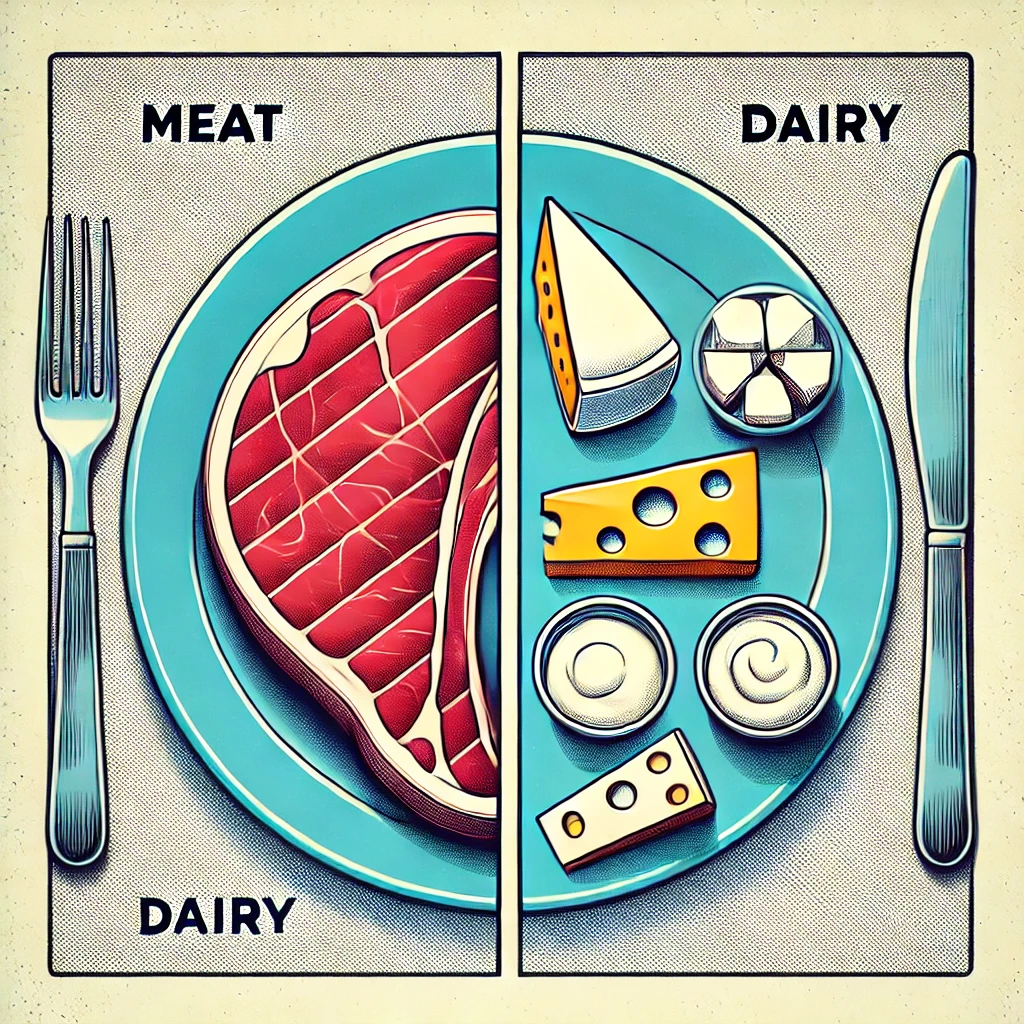

For food to be considered kosher, it must meet several specific requirements under Jewish law (Kashrut). These include:
- Permitted animals: Only animals that chew cud and have cloven hooves, such as cows and sheep, are considered kosher. Fish must have fins and scales.
- Slaughter process: Kosher slaughter, called Shechita, requires that the animal be killed quickly and humanely by a trained Jewish slaughterer (shochet). A prayer is recited, and all blood must be drained from the animal.
- Separation of meat and dairy: Kosher law strictly prohibits mixing meat and dairy. Separate utensils and preparation areas must be used for meat and dairy products, and there are specific waiting times between consuming meat and dairy.
- Rabbinical supervision: All kosher food must be inspected and certified by a Rabbi to ensure compliance with Jewish dietary laws. Kosher certification labels like OU or OK are used to indicate that the food is kosher.
Kosher certification extends beyond meat to include processed foods, beverages, and even kitchen equipment, making the observance of these dietary laws comprehensive and far-reaching.
Conclusion
Kosher and halal dietary laws are rich in tradition and deeply rooted in the religious and cultural identities of Judaism and Islam, respectively. While they share some similarities in their restrictions, such as prohibiting pork and requiring humane slaughter, their rules differ in many important aspects, from the types of animals allowed to how food is processed and certified.
Understanding these differences can help individuals navigate both Jewish and Islamic dietary practices and make informed choices when it comes to food. For those who follow either tradition, adhering to these dietary laws is not just about food; it’s about honoring religious obligations and maintaining a connection to their faith.
















